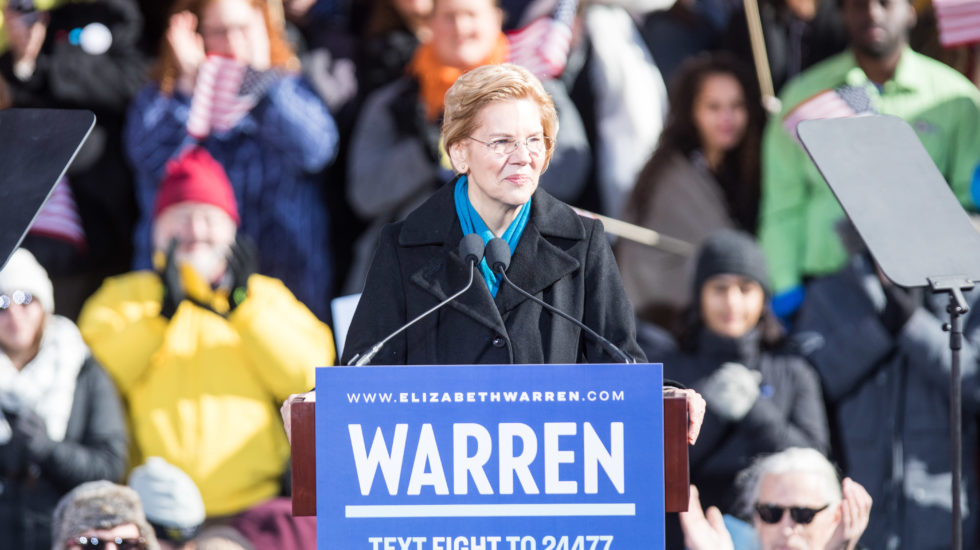Progressive Democrats are turning their collective spotlight on corporate monopolies and trust-busting. It’s been the talk of several Democratic presidential campaigns and now one group in Washington has come forward with a policy proposal.
The gusher of anti-trust sentiment was led by a new report from The Center for American Progress, a liberal policy think-tank, and rapidly surged onto Twitter.
“The Center for American Progress (CAP) is going in big on the antitrust debate, with a proposal aimed at putting meat on the bone of the policy discussion for both progressives on the Hill and the campaign trail,” Axios reports, adding that it “outlines policy changes to remove barriers to entry [by corporate competitors], with a new ‘monopoly tax’ as a backstop.”
In a summary of its report, CAP says: “The share of corporations earning profits above competitive levels has risen since the late 1970s. Large firms in many sectors—especially in communication services, health care, and information technology (IT) — now have market power that allows them to maintain prices above competitive levels.
“This has important implications for the U.S. economy, which is largely governed through market competition. When firms are earning economic rents — returns to capital beyond what a competitive market would normally allow — income is redistributed upward to owners. The economic rents that flow to these owners function like a tax on everyone else, lowering real wages and shifting overall income shares away from workers.”
Multiple tweeters noted parallels between our time and the Gilded Age of the late 19th Century, and its destruction by the subsequent Progressive Era of trust-busting, led in part by President Theodore Roosevelt.
CAP recommends “changes to antitrust policy and enforcement; changes to the rules that govern intellectual property; and measures to increase access to important types of data.”
It also calls for “a monopoly tax, levied on companies that earn profits in uncompetitive markets” by limiting revenues that can be used for “entry barriers” — actions taken by monopolies to prevent the growth of competition that could cut into profits.
“Instituting a monopoly tax would have three effects,” CAP says: it would “make revenues available for public purposes without harming [corporate] efficiency. It would also discourage further efforts to enhance market power through actions such as mergers and acquisitions, and it would “diminish the ability of firms with market power to use their outsize returns to influence political and regulatory outcomes.”
